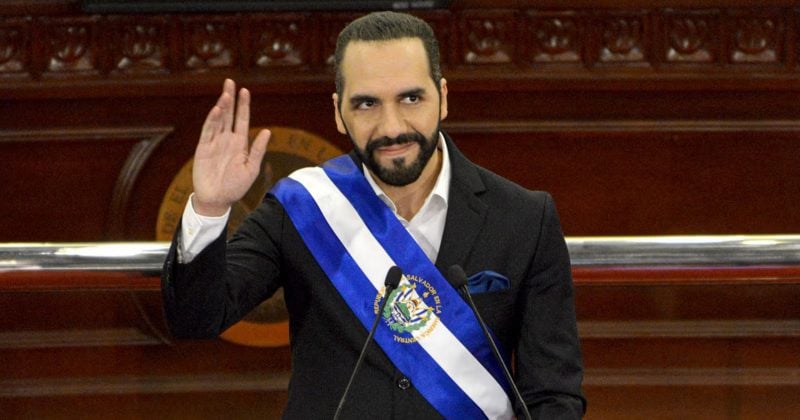Key Takeaways:
I. Technical challenges, including low Chivo wallet adoption and Lightning Network limitations, hindered the effectiveness of Bitcoin as legal tender.
II. The economic impact of Bitcoin adoption was limited, with minimal impact on remittances and financial inclusion.
III. The IMF agreement and the shift to voluntary Bitcoin acceptance reflect a recognition of the experiment's shortcomings and the need for a more cautious approach.
El Salvador's adoption of Bitcoin as legal tender in September 2021, a move championed by President Nayib Bukele, presented a unique real-world experiment with significant implications for the future of finance. While initially touted as a revolutionary step towards financial inclusion and economic growth, the initiative has faced numerous challenges, prompting a recent agreement with the IMF to shift towards voluntary Bitcoin acceptance. This article provides a comprehensive assessment of the technical, economic, and geopolitical aspects of El Salvador's Bitcoin experiment, offering valuable insights for policymakers, technologists, and economists alike.
Technical Hurdles: The Chivo Wallet and Lightning Network
The Chivo wallet, a government-backed digital wallet designed to facilitate Bitcoin transactions, faced significant technical challenges from the outset. Issues with security vulnerabilities, a less-than-intuitive user interface, and frequent outages plagued the platform, hindering widespread adoption. Despite government incentives, including a $30 Bitcoin bonus for new users, Chivo wallet downloads plummeted from an initial surge of 40% in September 2021 to near zero in 2022, indicating a lack of sustained user engagement.
| Metric | Sept 2021 | 2022 | Feb 2022 | 2024 |
|---|---|---|---|---|
| Chivo Wallet Downloads | 40% of total | Practically none | N/A | N/A |
| Chivo Wallet Usage (among aware households) | N/A | N/A | 54.84% | N/A |
| Bitcoin Usage for Payments | N/A | N/A | N/A | 8% |
Note: Data limitations prevent a comprehensive analysis of Chivo Wallet adoption and usage trends.
The Lightning Network, a layer-2 scaling solution designed to enable faster and cheaper Bitcoin transactions, also faced limitations in El Salvador. While theoretically capable of handling high transaction volumes, the Lightning Network experienced congestion and latency issues, particularly during periods of peak demand. This impacted transaction speeds and fees, undermining the purported benefits of using Bitcoin for remittances and everyday payments. The lack of widespread merchant adoption further compounded these challenges, limiting the practical utility of the Chivo wallet and the Lightning Network.
The reliance on River Financial's River Lightning Services (RLS), a US-based company, to power the Chivo wallet's Lightning Network transactions raised concerns about national sovereignty and potential regulatory interference. This custodial arrangement, where River Financial held a portion of El Salvador's Bitcoin reserves, created a single point of failure and vulnerability. The lack of transparency surrounding this partnership further fueled skepticism about the long-term viability and security of the Bitcoin infrastructure.
Overall, the technical implementation of Bitcoin in El Salvador fell short of expectations. The combination of a flawed digital wallet, limitations of the Lightning Network, and reliance on a foreign provider created significant barriers to adoption and undermined the government's narrative of technological innovation and financial empowerment. These technical shortcomings laid the groundwork for the subsequent economic challenges and ultimately contributed to the policy shift towards voluntary Bitcoin acceptance.
Economic Realities: Remittances, Inclusion, and Volatility
One of the primary motivations for adopting Bitcoin was its potential to reduce remittance costs, which represent a significant portion of El Salvador's GDP (23% in 2020, totaling $6.3 billion). However, despite the theoretical potential for lower fees compared to traditional money transfer operators (5-10%), the actual impact of Bitcoin on remittance flows was minimal. The technical complexities of using Bitcoin, coupled with its price volatility, deterred many Salvadorans from adopting it as a remittance channel.
Bitcoin's inherent price volatility posed a significant challenge to its use as a currency in El Salvador. Fluctuations in Bitcoin's value created uncertainty for businesses and consumers, making it difficult to price goods and services and undermining confidence in the currency. The government's decision to purchase and hold Bitcoin on its balance sheet further exposed the national treasury to market risks, amplifying the negative consequences of volatility.
The goal of promoting financial inclusion through Bitcoin adoption also faced significant hurdles. While proponents argued that Bitcoin could provide access to financial services for the unbanked population, the technical complexities of using cryptocurrencies, coupled with the digital literacy gap and limited internet access in many parts of El Salvador, hindered its accessibility. The lack of widespread merchant adoption further limited the practical utility of Bitcoin for everyday transactions.
While El Salvador experienced economic growth during the period of Bitcoin adoption (19% from 2021-2023), attributing this growth solely to Bitcoin is misleading. Other factors, such as increased tourism and remittances through traditional channels, likely played a more significant role. Furthermore, the country's public debt remained a concern, reaching 85% of GDP in 2024, despite the initial optimism surrounding Bitcoin adoption.
Geopolitical Pressures and the IMF Intervention
The International Monetary Fund (IMF) expressed significant concerns about El Salvador's Bitcoin experiment, warning of the risks associated with its volatility and potential impact on financial stability. The IMF's skepticism stemmed from the lack of a clear regulatory framework for cryptocurrencies and the potential for Bitcoin to be used for illicit activities. These concerns led to pressure on the Salvadoran government to revise its Bitcoin policy.
The $1.4 billion agreement reached between El Salvador and the IMF in December 2024 marked a turning point in the country's Bitcoin experiment. As part of the agreement, El Salvador agreed to make Bitcoin acceptance voluntary in the private sector and limit public sector involvement. This policy shift, coupled with fiscal consolidation measures, effectively signaled a retreat from the initial ambitious plan and a move towards greater financial stability under the guidance of the IMF. The agreement also included expectations of additional financing from the World Bank and regional development banks, totaling $3.5 billion, further reinforcing the IMF's influence on El Salvador's economic policy.
Lessons Learned and Future Implications
El Salvador's Bitcoin experiment provides valuable lessons for other countries considering or implementing cryptocurrency adoption strategies. The technical challenges, limited economic impact, and geopolitical pressures faced by El Salvador underscore the complexities of integrating cryptocurrencies into national economies. While the experiment demonstrated the potential for innovation, it also highlighted the importance of robust infrastructure, clear regulatory frameworks, and careful consideration of the risks associated with volatile cryptocurrencies. The shift towards voluntary Bitcoin acceptance in El Salvador signals a recognition of these challenges and a move towards a more pragmatic approach. The long-term implications of this experiment will continue to shape the global conversation surrounding cryptocurrency adoption and regulation.
----------
Further Reads
I. Actually, they are not even using lighning wallets. They are using a centralized... | Hacker News









